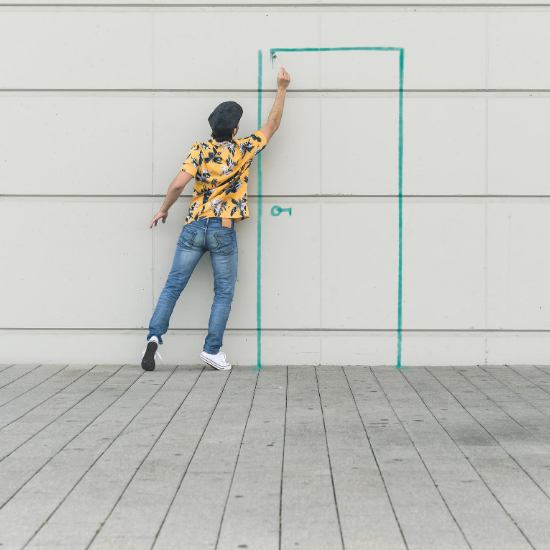
Inspiring insights in creative minds
The 20/21 Green Alley Award has just been kicked off. For the seventh time the team is eagerly awaiting exciting solutions that have the power to promote the circular economy. Now, what exactly makes a product or a service innovative and creative? Which solution is suited best for achieving the shift? There is no clear answer to that question. All of us have a different take on creativity and innovation. The same holds true for the circular economy. It is a complex issue with various perspectives. We have put together a series of inspiring, delightful and often funny talks which look at creativity, innovation and the circular economy from different and sometimes very unusual angles.
Seeing the Circular Economy from a different angle
What do you learn when you sail around the world on your own? When solo sailor Ellen MacArthur circled the globe – carrying everything she needed with her – she came back with new insight into the way the world works, as a place of interlocking cycles and finite resources, where the decisions we make today affect what's left for tomorrow. In this inspiring talk, she proposes a bold new way to see the world's economic systems: not as linear, but as circular, where everything comes around.
Every Google search or YouTube upload costs the global network both energy and resources. As Google's head of sustainability, it's Kate E. Brandt's job to strategize solutions that cut the cost on our environment and our economy. In an innovative talk, she dives into her plan to green up Google by creating a circular economy which reuses, recycles and eliminates waste altogether
Dealing with the waste of a consumer society is one of the greatest challenges of our modern times. But UPS' Sustainability Director, Peter Harris wonders: what if waste weren't waste at all? Harris talks about a plan where methane from the trash we produce fuels the machines that transport our critical goods; a closed-loop, circular economy that powers our world along the way.
Can we solve the problem of ocean plastic pollution and end extreme poverty at the same time? That's the ambitious goal of CEO and founder of the Plastic Bank, the world’s only organization to monetize plastic waste and provide opportunity for the world’s disadvantaged to collect and trade plastic waste as a currency, David Katz. In his talk, he explains the principle of the Plastic Bank is a worldwide chain of stores where everything from school tuition to cooking fuel and more is available for purchase in exchange for plastic garbage -- which is then sorted, shredded and sold to brands who reuse "social plastic" in their products. "Preventing ocean plastic could be humanity's richest opportunity," Katz states.
Martin Wright is a Director of Forum for the Future, with particular responsibility for India. He is Founding Editor of Green Futures, the world's leading magazine on environmental solutions and sustainable futures. Wright is also Chair of Positive News, a partner of the Green Alley Award. For the first time he will be among the judges selecting the 20/21 Green Alley Award winner. In this talk, Martin gives an insight into his idea of a new economy.
Different perspectives on creativity&innovation
In this joyful, heartfelt talk featuring demos of her wonderfully wacky creations, Simone Giertz shares her craft: making useless robots. Her inventions -- designed to chop vegetables, cut hair, apply lipstick and more -- rarely (if ever) succeed, and that's the point. "The true beauty of making useless things [is] this acknowledgment that you don't always know what the best answer is," Giertz says. "It turns off that voice in your head that tells you that you know exactly how the world works. Maybe a toothbrush helmet isn't the answer, but at least you're asking the question." Simone also runs a youtube channel on robotics
Navi Radjou, an innovation strategist who studied entrepreneurs in emerging countries has spent years studying "jugaad," also known as frugal innovation. Pioneered by entrepreneurs in emerging markets who figured out how to get spectacular value from limited resources, the practice has now caught on globally. Peppering his talk with a wealth of examples of human ingenuity at work, Radjou also shares three principles for how we can all do more with less.
Elizabeth Gilbert, author of bestselling novel 'Eat, Pray, Love' muses on the impossible things we expect from artists and geniuses -- and shares the radical idea that, instead of the rare person "being" a genius, all of us "have" a genius. It's a funny, personal and surprisingly moving talk.
In a world of too many options and too little time, our obvious choice is to just ignore the ordinary stuff. Marketing guru and entrepreneur and blogger Seth Godin uses this talk to spell out why, when it comes to getting our attention, bad or bizarre ideas are more successful than boring ones.